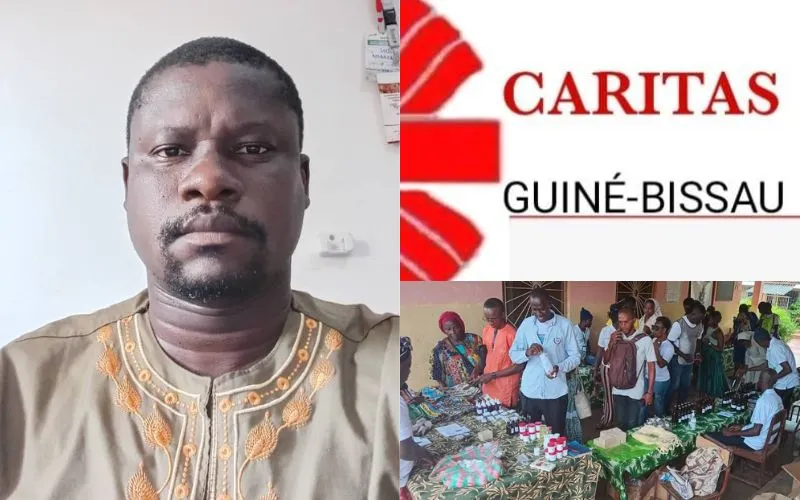“We are setting up reception centers for women at obstetric risk. Currently, there are seven centers in operation, and with this new project, we have added three more,” he said, adding that Caritas teams conduct community screenings to identify expectant women at risk and bring them to these centers, where they give birth before returning home.
In addition to health and infrastructure projects, Caritas Guinea-Bissau is promoting climate change adaptation efforts with funding from Caritas Germany, Cassamá told ACI Africa.
This project, he said, “focuses on building wells, drilling boreholes, and creating gardens for women. We also provide training to local producers to improve the cultivation of cassava, yams, and other tubers and supply machines for processing rice and vehicles to transport products to markets.”
In education, Caritas Guinea-Bissau operates a school feeding initiative in partnership with the Catholic Relief Services (CRS) and the U.S. Department of Agriculture (USDA), Cassamá told ACI Africa about the initiative that he said benefits 350 schools nationwide, providing food supplies such as rice, peas, and cooking oil, alongside locally purchased produce.
“The goal is to ensure children have proper breakfast and lunch while in school,” he added.
(Story continues below)
Cassamá said that Caritas Guinea-Bissau facilitates community savings among groups in schools, and explained, “These groups, comprising up to 30 members, meet weekly to save and contribute to a solidarity fund. This fund supports schools, and communities, and provides loans for small business initiatives.”
Caritas Guinea-Bissau is also dedicated to supporting vulnerable children, including maintaining an orphanage currently caring for 68 children, 36 of whom have disabilities, he said, adding that the Catholic entity whose programs he coordinates has established an inclusive school in the orphanage, where children with and without disabilities learn together.
“We are promoting social inclusion from childhood. At present, we have 36 children with special needs, and we are training teachers to effectively meet these needs,” he said.
Looking into the future, Cassamá underscored the need for more partnerships in the ongoing initiatives to reach out to the needy, especially the vulnerable in communities.
“While we’ve made significant progress, financial challenges remain. Caritas Guinea-Bissau continues working to ensure these communities have the quality of life they deserve, but we need resources to sustain these projects,” he said.
The Program Coordinator of Caritas Guinea-Bissau added, “International partnerships remain crucial, though we are also striving for greater community self-reliance.”
João Vissesse is an Angolan Journalist with a passion and rich experience in Catholic Church Communication and Media Apostolate.








